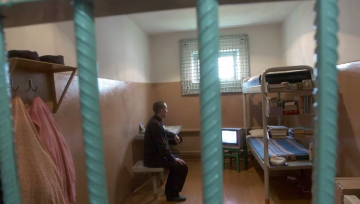lawyer, 23 years of experience in enforcement.
Procedure for execution of non-property decisions
Execution of decisions, according to which the debtor is obliged to personally perform certain actions or refrain from their performance, is carried out in accordance with the procedure defined by Article 63 of the Law of Ukraine "On Enforcement Proceedings" (hereinafter the Law "PVP")
Decisions according to which the debtor is obliged to personally perform certain actions
According to the decisions, according to which the debtor is obliged to personally perform certain actions or to refrain from performing them, the executor on the next working day after the expiration of the period determined by Part 6 of Article 26 of this Law "PVP" verifies the implementation of the decision by the debtor. If the decision is subject to immediate execution, the executor checks the implementation of the decision no later than on the third working day after the opening of the enforcement proceedings.
In case of non-execution of the decision by the debtor without good reason, the executor issues a resolution imposing a fine on the debtor, which also states the requirement to execute the decision within 10 working days (within three working days for a decision subject to immediate execution) and a warning of criminal liability.
On the next working day after the expiration of the term provided for in the second part of this article, the executor shall re-check the execution of the decision by the debtor.
In the case of repeated non-execution of the decision by the debtor without valid reasons, if such a decision can be implemented without the participation of the debtor, the executor sends a notification to the pre-trial investigation body about the debtor's commission of a criminal offense and takes measures to enforce the decision, provided for by this Law.
In the event that the debtor does not comply with the decision, which cannot be executed without the debtor's participation, the executor sends a notice of the debtor's commission of a criminal offense to the pre-trial investigation body and issues a resolution to terminate the enforcement proceedings.
A decision to prohibit certain actions.
The executor, during the implementation of the decision to prohibit certain actions or to refrain from certain actions, brings to the notice of the debtor the decisive part of such a decision, about which he draws up the corresponding act. After drawing up the act, the executor issues a decision on the termination of the executive proceedings.
If the debtor fails to comply with the decision within the deadline set by the executor, a fine is imposed on the debtor in accordance with Article 75 of the Law of Ukraine "On Enforcement Proceedings".
When executing a decision of a non-property nature, if the debtor does not independently pay the enforcement fee, the costs of the enforcement proceedings and the fines imposed on him, in the cases provided for by the Law, the executor forcibly collects the enforcement fee, the costs of the enforcement proceedings and the fines imposed on the debtor simultaneously with the execution of such decision. In the case of the completion of enforcement proceedings, if the fines imposed on the debtor have not been collected, the decision on the imposition of a fine shall be registered in the automated system of enforcement proceedings as an enforcement document no later than the next working day from the day of the return of the enforcement document (end of enforcement proceedings) and shall be executed in the order, provided by the Law.
The private executor is obliged to submit the decision on the imposition of a fine to the relevant body of the state executive service for further execution.
If, after the completion of enforcement proceedings based on a decision of a non-property nature, the enforcement fee and costs of enforcement proceedings have not been collected, the executor shall take measures for their further implementation in a general manner.
Despite the rather simple general procedure for the execution of decisions of a non-property nature, the execution of such documents is a rather complicated process, and sometimes such decisions cannot be executed.
I would like to draw your attention to the fact that, in addition to the general order, there is a separate order of execution for such decisions as the removal of a child, establishing a date with a child, moving in or out, resuming work.
Therefore, having a decision on the obligation of the debtor to perform actions, confiscation of property or other, it is advisable to obtain the services of a lawyer. In this way, a lawyer or an attorney will make a legal analysis of the situation and help to achieve the implementation of such a decision, and first of all, he will explain what problems may arise during such implementation, and, if possible, avoid additional spending of funds.
































